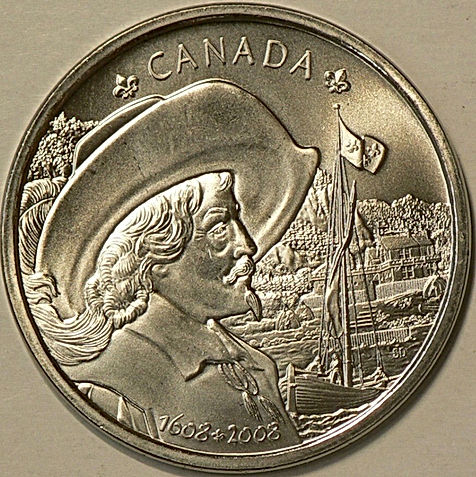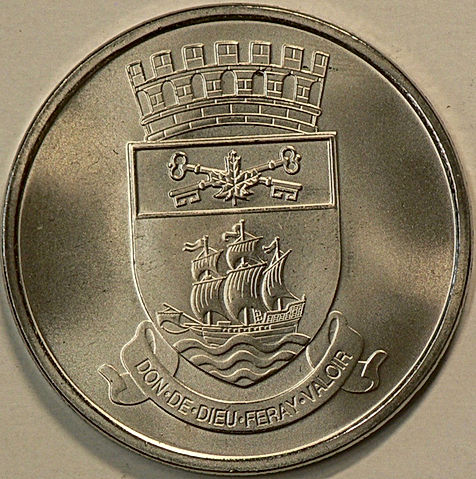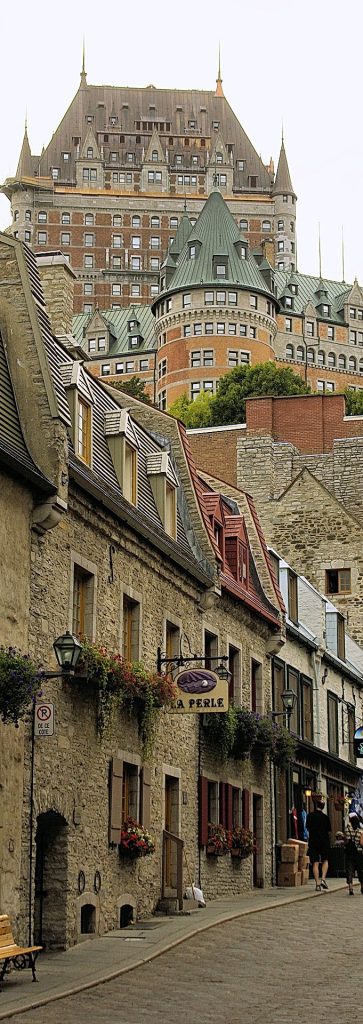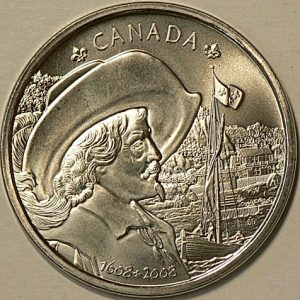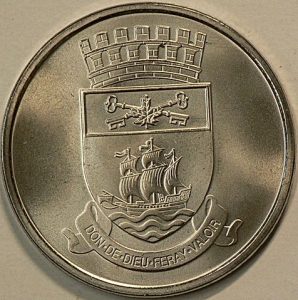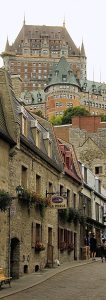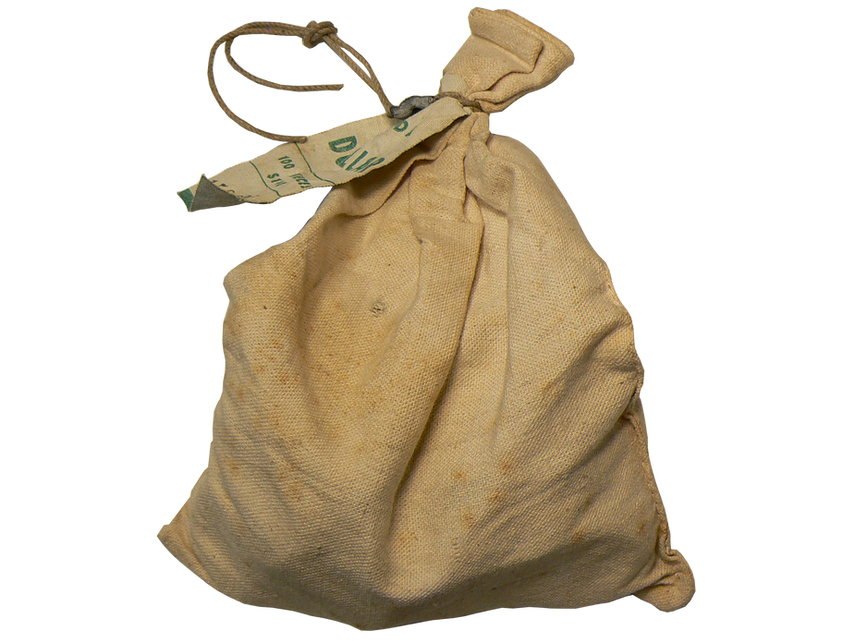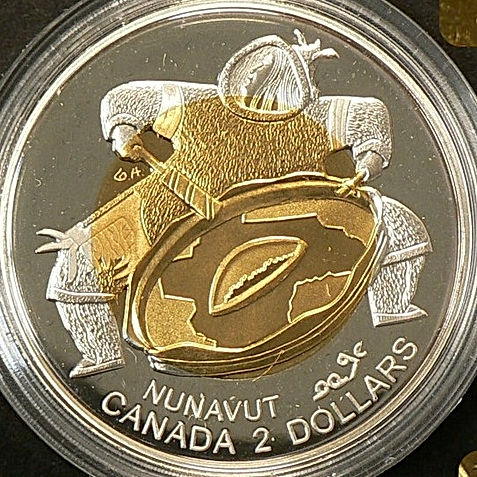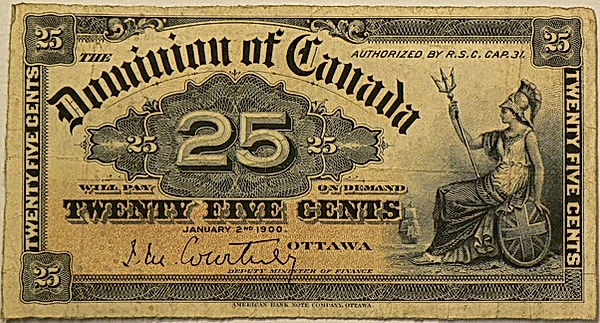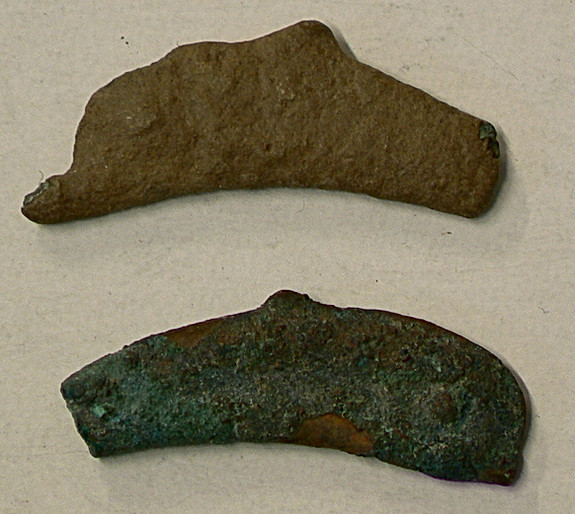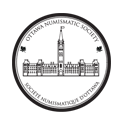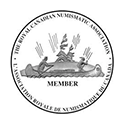Interesting items
1608-2008 commemorative dollar
Samuel de Champlain
Samuel de Champlain, (born 1567, Brouage, France—died December 25, 1635, Quebec, New France [now in Quebec, Canada]), French explorer, acknowledged founder of the city of Quebec (1608), and consolidator of the French colonies in the New World. He discovered the lake that bears his name(1609) and made other explorations of what is now northern New York, the Ottawa River, and the eastern Great Lakes.
If the walls could talk…
… they would tell us about the Algonquins coming to treat, European settlers, canonicals and big balls. Such were the scenes in the only fortified city remaining in North America: Quebec, a product of the race for the Northwest Passage, and a Europe that forsook the riches of the Orient for the furs of the New World.
1608: the majestic St. Lawrence promises to be a great commercial artery and Samuel de Champlain seeks on its shores a place conducive to a trading post. He opts for a strategic location that the Algonquins call Kebec (“where the river narrows”), where they practice fishing and bartering, which seems auspicious to the explorer. His first “habitation” is at the same time a residence, a warehouse and a fort with guns, palisade, ditch and drawbridge. At the end of a prosperous year, a company where the Amerindians come to exchange furs for European products.
Crossroads of ships from the Old Continent and canoes going up and down the river, Quebec becomes the third maritime city in North America.
Composition:
92.5% silver, 7.5% copper
Finished:
Numismatic proof
Reverse:
Samuel de Champlain with, in the background, the home he founded in Kebec, by Suzanne Duranceau
Avers:
Coat of arms of Quebec city

